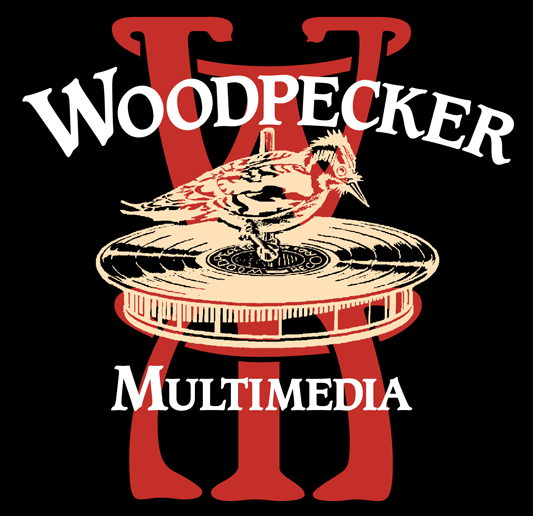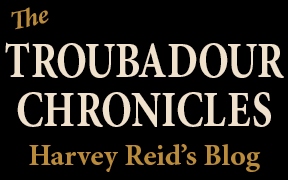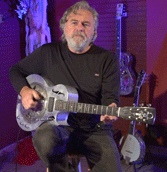 H
H 


|
|
Are Guitar Orchestras A Good Idea?
A growing new trend in guitar education is taking students and families in a new direction in the name of innovation in guitar education. Is it a good or a bad idea? Probably the largest of the unsolved problems in classroom guitar education is that guitar works best either as a solo instrument or in relatively small groups. The entrenched ideas of school bands, choirs and orchestras are centered around the fact that they involve large numbers of students participating at the same time, and they have functioned for decades in ways that teachers, students and families can attest to. We all know what those big school ensembles sound like, and a lot of us have been through it ourselves or have kids in the middle of it. I'm a guitarist who plays serious instrumental music as well as "campfire guitar," but I'm not a school music educator, so I won't go into the issues, pros and cons of school music programs in general, and whether they are doing much long-term good in getting children started in music. But I do want to shine a light on the "guitar orchestra" idea here in case you or someone you love are thinking of joining one or contributing energy or money toward building or maintaining one. What is a guitar orchestra?A guitar orchestra is an ensemble of players, all sitting like a "real orchestra," usually clustered around a conductor with music stands in front of them, all playing guitars and generally looking at a page of music. Most guitar orchestras seem to use nylon-string acoustic guitars primarily, played in the manner of classical guitar, using bare fingers or fingernails to pluck the strings. You can find lots of examples on YouTube if you search for "guitar orchestra." There are "Mexican guitar orchestras" that add bajo sexto or guitarron plus the smaller requinto guitar. The "Japanese guitar orchestra" now has 4 sizes of guitars. The part for each orchestra member is carefully created, written out, published and sold to the school like other scores for the band, and the students are each playing their parts, usually one note at a time. You'll see a group of players in one "section" all playing a riff on the bass E string in unison to make a bigger sound, and a group in the other side all playing notes on a different string, not unlike the way there are duplicate violins, horns & woodwinds in a classic orchestra. Music educators are touting this as a way to involve lots of students, and it seems to be growing fast, even as arts and music education is dwindling or stagnant at best. Because the students are playing guitars, it seems better and fresh, and enables the educators to deal with the obvious but thorny question of "Why can't children learn to play guitar in school?" Now they can answer that question by saying two things that we need to look at carefully: 1) students are learning to play guitar and 2) they are learning to play "correctly" with sheet music and a conductor, just like "real orchestras" do. ADVANTAGESLet's start with the good and helpful aspects of the guitar orchestra. It's possible that it is a terrific new idea in music education that will get guitars in the hands of many more students than ever.1) Students are indeed holding guitars in their hands. Guitar long ago replaced the piano and horns as the dominant instrument of our culture, and deserves to be a much larger part of music education. 2) A guitar orchestra can adapt to students of mixed ages and abilities, and perform even if some members are absent. 3) Guitars are much less expensive than horns and woodwinds. A playable student classical guitar can be bought for $100, which is barely a month's rental on a good student saxophone. 4) A teacher who has been running a school band or orchestra can start a guitar orchestra with the sight-reading & conducting skill set they already have. There is also no need for the leader to be a guitarist. This is valuable, because there usually aren't skilled guitarists running school band or orchestra programs, and hiring a new teacher isn't practical in these days of arts education cutbacks. 5) Because the students aren't playing the usual beginner's repertoire of solo classical guitar pieces or even "normal" beginning guitar chords, children can start playing in a guitar orchestra many years sooner than they would normally start playing "conventional guitar." Here is a video of schoolchildren in a small guitar orchestra. Notice their footstools, and how happy the kids seem to be to have guitars in their hands. Here are some kids from Poland who mix up acoustic and electric guitars, seeming to be more up-to-date. 6) Guitar manufacturers and publishers of music for guitar orchestras will benefit, though the manufacturers who stand to gain the most will be large Asian companies who make inexpensive instruments and the distributors who import them. Very few (if any) entry-level guitars are made in the US. DISADVANTAGESNow let's look at the "dark side" of the guitar orchestra, and some reasons why it's maybe not such a great idea. It's possible that the forces behind it are not being honest about what the guitar is really best used for, and are distorting the deep relationship between people and their chosen instrument, the guitar. The guitar has flourished outside the classroom music world, and it's not clear that bringing it into the classroom in the format of the guitar orchestra is going to benefit the guitar or the fundamental disconnect between school music programs and the "un-academic" music of modern culture.1) Guitar orchestras focus entirely on instrumental guitar. It makes much more sense for school chidren to use guitars the way most people use them, which is to accompany songs. Instrumental guitar is very hard, and very few adults ever learn to do it well enough for it to be a meaningful pastime for them. 2) Guitar orchestra students are playing contrived and watered-down musical arrangements that aren't a normal part of the guitar's "real life." Individually, essentially none of the players in a guitar orchestra is really doing what an actual guitarist would do in a performance. The school band as we now know it also never existed until it was invented 100 years ago by music publishing companies to sell sheet music and instruments. The guitar orchestra was also created by music educators and publishers who want to keep their 90-year-old relationship going the way it has always been as much as possible. Kids learn to read "real books" and play "real sports" like basketball and baseball in school, and it's possible that they don't need to play contrived forms of music that only exist in schools. 3) Guitar orchestras seem to like to play arrangements of popular songs more than classical music, which sort of makes them into a modern version of 101 Strings. I find the music they play to be lacking in passion and emotional content, which is my chief complaint with other school ensembles I've heard. Children have so much passion and love for music, and probably deserve more of an outlet for it. It's bad enough that many schoolchildren are being slightly traumatized by their school band experiences, which tend to reward the skilled ones and not care about the feelings of those who are cast off. The teaching curriculum and process is essentially a search for the next generation who meet sufficient levels of performance. To maintain the system, it pressures all who participate in it in a non-egalitarian manner. Those who succeed are rewarded, while those who aren't as good are punished and rejected. The idea that the purpose of it all might be to add meaning to the lives of the students doesn't always seem to be in the forefront. It's not a bad analogy to think of music as a language, and looking at language education can offer some contrast and helpful comparisons. Like music, language thrives in culture without regulation, and the attempts by the French government to control what words are allowed to be used and to try to prevent slang from taking over reminds me in some ways of the ways in which music education is trying to cling to antiquated ways of learning in the face of the firestorm of rampant popular musical energy that has been tearing through the world for decades. When Benny Goodman was on top of the music charts in the 1930s, what his band was doing is basically what school bands are being taught to do today, with the same instruments and the same skill set. It's too bad that classroom learning has to lag 60-80 years behind culture, and from what I can tell this situation is not uncommon across a lot of education, it's not a reason to celebrate and perpetuate it. 4) In a guitar orchestra, students are learning to play a sort of "non-guitar" guitar style, and likely learning their "non-guitar" from a non-guitarist. As a guitarist, that bothers me more than a little. I shudder to think of the people who learned their little guitar orchestra riffs playing them 30 years later on their couches. It's just an updated version of all the student trombones in the pawn shops. I came across a book where it was spelled out almost 1000 years ago that part of a good education was for a person to know how to walk into a gathering of people, command their attention and perform something musical, tell a joke or juggle or somehow be entertaining. The guitar has evolved as the musical tool of choice for doing that kind of job, and it's unfortunate when guitar education doesn't train people to do the jobs the instrument does best. 5) Once again, students are pressured and encouraged to be obedient, and treated like puppets, managed and controlled by an adult. Where is the self-expression? Where is the emotion in those videos of guitar orchestras? Here is what I think children should be doing with guitars. From what I have observed, art class is the only place in a public school where chidren seem to encouraged to express themselves and do what they feel, though when I see that 12 out of 18 kids in a class painted the sky purple in art class I wonder how impulsive their choice of color was, and whether their little flames of self-expression can survive the onslaught of controlled and organized learning they are put through in schools. For my kids, art class, the tiny island of self-expression, means one hour a week, or about 3% of their school time. And we wonder why children have behavior problems or use drugs. Maybe they need more real-life stimulation, and music that encourages expression can actually offer that. I'm anxious to learn how public school art education got free from the drudgery of drawing perfect lines and obediently making sure colors and perspectives were correct. You can bet that in 1850 art instuction was as dry, structured and insipid as modern school music instruction is now. Picasso and those other wild artists in the 20th century somehow got art education in public schools to be about students expressing themselves happily, and we need more of that in music, please. And maybe in math and reading also, for that matter. 6) Guitar orchestra students are being led to believe that learning to sight-read and follow a conductor is "correct" and has real value in their lives. I have posted my in-depth examination of the role of sight-reading in guitar education. Personally, I think the sight-reading of guitar music is a total dead-end, a poor use of student time & energy, and another excuse to continue to defend the Medieval castle of music education from those guitar-playing Visigoths. Some think the guitar orchestra is a great new development, but I think it is a wolf in sheep's clothing. It's possibly a slightly more relevant improvement on the school band/orchestra/choir thing, but it's also perpetuating a music education system that needs to be seriously über-ized and updated. School music programs haven't even made it to the 20th century yet. I was in the first generation of children in the 1960s who learned a foreign language using tape recorders instead of books, and I believe the consensus has long been that this was a huge step forward and worked very well. Now the language folks are also discovering the immense value of video, yet the music education world still thinks that quarter notes, rests, staves and clefs are the proper way to learn, and the modern tools they are using are just software that teaches sight-reading, using the same symbols and with the same limitations. (Luckily most young people today are absorbing music from pop culture and YouTube videos, and music education itself is healthy, but not inside the walls of public schools.) Our children deserve better, more meaningful and more relevant music education in the schools. I am working hard to provide a better way and I write this not to be a gadfly or to be negative, but because I can't find much informed discussion of these issues. Few unschooled musicians seem bold or confident enough to challenge the "authority" and "correctness" of the entrenched school music curriculum, those inside the system only want to make incremental changes, and the funding is scarce or non-existent to implement anything new in the arts. Now that guitar has been the dominant instrument in pop culture for over 2 generations, isn't it way past time for its actual ways to be accepted and allowed into our public music education system? There is barely anyone alive today who still remembers hearing the big bands in their heyday, and shouldn't the conveyor belt of time move the horn band thing onward and make way for something more relevant? They now try to teach math to kids the way they might need it in real life, with estimates and "ball park" answers. They teach kids to do critical thinking, make presentations, and to write business letters and resumés instead of just short stories, poetry and novels, which is all good. But guitarists don't sight-read and never will. Popular bands don't have conductors. And children have real passion for music that could be harnessed and directed into so much more than seems to be happening. Guitarists usually generate their own rhythms, using chords and grooves instead of stiff conductors who behave like metronomes. Or they take solos, usually in the moment and choosing their notes according to how they are feeling. Building a big body of guitar sounds out of lots of little riffs in a guitar orchestra gives the students and their families who are driving them to lessons and paying for their instruments a phony sense that the kids are learning to play guitar. It's not as bad as the Guitar Hero video games, but it's a far cry from what musicians normally do. Students walk away from an experience being in a guitar orchestra with a skill set that does not really qualify them to do anything but be in another guitar orchestra.They can't play listenable music for friends or family, they can't really be in a band or jam with other guitar players, and they think they need a music stand in front of them with notes on it, or 6 other people to play the other parts of the score. So what's the point of doing it at all? At least the families that participate in this will not squander as much money on horn rentals, and there may be lots of closets and pawnshops with $100 classical guitars gathering dust instead of all those trombones and clarinets. Those guitars can be put to actual musical use, but the skills the students learned in their guitar orchestras won't be much of a part of their new lives as guitar players. It's too bad they couldn't have learned something more useful to do with their guitars a lot sooner. This is another posting where I'm trying to raise issues and awareness in the life of modern troubadours... Thank you if you made it this far, and please check back to look for new posts as I get them done. I plan to cover a wide range of issues and topics. Chordally yours, HARVEY REID ©2017
|
